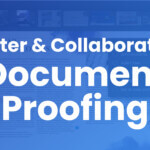Though small changes to your routine or habits may seem too minor to bother with, they could have a substantial cumulative effect over time.
We often think of change as a scary monster to face. Go on a diet. Change careers. End a relationship. But change doesn’t have to be on a large scale to matter.
Everyone has drains on their productivity, both big and small. These drains could be quietly undermining your performance. Luckily, they usually only require a quick tweak to your routine to fix. When it comes to your productivity, a few micro-adjustments could make a huge difference.
Let’s dive into the power of marginal gains and six ways to address drains on your productivity.
Changes with Marginal Gains
The concept of marginal gains is the idea that focusing on tiny improvements in different areas will add up over time and make your overall process stronger.
Not only does this help you make continuous and sustainable improvements, but it also makes the whole idea of growth less daunting. Rather than a life-changing adjustment with all the fear of failure that may entail, you’re simply asking yourself to make a micro adjustment to how you already do things.
When thinking about the small changes you want to make to your routines or workflows, it’s helpful to consider the two forms that change can take:
The first is Improvement by Subtraction. Here, you focus on cutting down on negative behaviors that aren’t serving you.
As James Clear, author of Atomic Habits, explains: “In the real world, it is often easier to improve your performance by cutting the downside rather than capturing the upside.”
The second is Improvement by Addition. Here, you add positive behaviors that will gradually move you closer to where you want to be.
6 Small Changes You Can Make Right Now
So, the aim is to find small ways to reduce behaviors that don’t yield helpful results and to increase those that do.
While some of these adjustments seem minor, these changes will have a positive impact on your productivity in the long term.
1. Prevent Decision Fatigue
From what to wear to what to have for breakfast, your day is full of decisions.
Psychiatrist Dr. Lisa MacLean explains: “all of those decisions take time and energy and certainly can deplete us.”
That depletion is known as decision fatigue. It manifests in two main ways, both of which impact your workflow:
The first is risky decision-making, where you don’t take as much care with the choices you make. The second is decision avoidance, where you procrastinate making any choice at all. It can also increase stress, anxiety, and irritability, further threatening your productivity.
You can reduce decision fatigue by planning ahead.
By setting out your clothes the night before, meal planning for the week, or delegating small decisions at work, you’ll take a welcome bit of pressure off yourself and protect your decision-making resources for those choices that deserve your full capacity.
2. Say No to Noise Pollution
Even if you’re not consciously aware of the sound of your colleague typing or the beep of the office microwave, your brain is.
Evidence suggests any kind of noise may impact our performance on cognitively demanding tasks. Psychologist Nick Perham believes this is because the brain can never entirely disregard background noise, as it must constantly remain alert in case any sounds become relevant. That means your focus is split between your task and the environment.
Does this mean you should scrap your work playlist or ASMR video? Not necessarily.
Background noise impacts some people more than others, and certain sounds, like ones from the natural world, have even been found to boost performance.
But it would be worth trying out white noise or a pair of noise-canceling headphones, at least for a little while.
3. Clean up Your Digital Workspace
It’s often said that a tidy desk = a tidy mind, but how about a tidy desktop?
Try decluttering your digital workspace and personalizing your desktop so it only features apps you use regularly or reorganizing your files. You could save yourself valuable seconds (those seconds, of course, add up over time).
As well as smoothing out your workflow by removing micro-disruptions, taking a minimalist approach to your digital space can lessen feelings of stress and overwhelm.
If there are certain tasks you find yourself doing a lot, consider creating custom keyboard shortcuts to automate them. Here are instructions for doing so on Windows and on Apple Devices.
4. Tweak Your Posture
People are increasingly concerned with the impact technology and desk-based work may have on our posture, with some nicknaming neck pain from keeping your head tilted over a screen “tech neck.”
It goes without saying that muscular pain from sitting incorrectly can affect your concentration. It’s hard to be productive with a chronically sore neck or shoulders!
Your posture could be influencing you psychologically too.
Thanks to embodied cognition, certain positions seem to trigger different emotions in the brain. For instance, researchers from the University of Auckland found that maintaining an upright position helped people remain more confident in the face of stress. Poor posture can even prevent us from overcoming a negative mood.
Taking steps to improve your posture (stretching regularly, adjusting your chair, or using a standing desk) could help protect your physical and mental health, positively impacting your performance.
5. Read (and Listen) While You Clean
If you need to do a manual task that doesn’t require concentration, like dishes or folding laundry, try combining it with a podcast or an audiobook.
Combining a mundane task with a fun one reduces the pressure of “multi-tasking culture” while still optimizing your time. As celebrated author Kit De Waal put it in The Guardian, “(Audiobooks) enable the time-poor to stay in touch with reading.”
If you struggle to slot reading or personal development into your packed schedule, this is a simple fix that makes time work harder for you. Bonus: it also makes the chores seem a lot more inviting!
Check out these recommendations for the best productivity podcasts to get you started.
6. Don’t Put Yourself Down
You have a task to do, so you order yourself to focus, and very soon, you’re criticizing yourself for not making progress and insulting your abilities. Does this sound familiar?
Self-talk is the process of addressing yourself, whether aloud or inside your head. While a certain amount of tough-love self-talk can help keep you accountable, it can swiftly become damaging. Negative self-talk can lead to feelings of “imposter syndrome”. It could also leave you feeling anxious, demotivated, lacking in confidence, and less able to see opportunities.
On the other hand, positive self-talk can boost your productivity and motivation. The most effective forms of self-talk for enhancing your performance are short, positive statements delivered in the second person (“You can do this!”).
This is a long-term adjustment, but you can set yourself on the road with a few small steps.
Begin every task with a piece of encouragement for yourself; write down positive affirmations and leave them in places you’ll see them. Counteract negative thoughts that you notice by asking yourself how you’d speak to a loved one in your position.
You could also influence your self-talk more indirectly by prominently displaying reminders of your achievements.
No Change is Too Small
You don’t have to radically change how you do things to supercharge your performance and productivity. None of these changes alone will transform your life overnight. Combined, though, they can generate very noticeable results with a minimal investment of energy.
Making strategic adjustments can reduce frustration, fatigue, and wasted time, setting you up for success. They can also help you focus on continuous improvement through marginal gains, strengthening your process over time without putting yourself under pressure.






